Why young adults stay in their small Wisconsin town
Four residents of the Black River Falls area share the reasons why they continue to live in the community where they grew up rather than moving to a larger city.
By Zac Schultz | Here & Now
June 9, 2022 • West Central Region
Jackson County is cranberry country, and Jack Harkner was born into the business.
“I think it goes back to my great-grandpa,” Jack said.
His whole life has been focused on taking over the family farm.
“Ever since I was a kid, I always wanted to own the marsh for myself, and run it myself, and do all the things that my dad got to do because I thought those were the coolest things ever,” he explained.
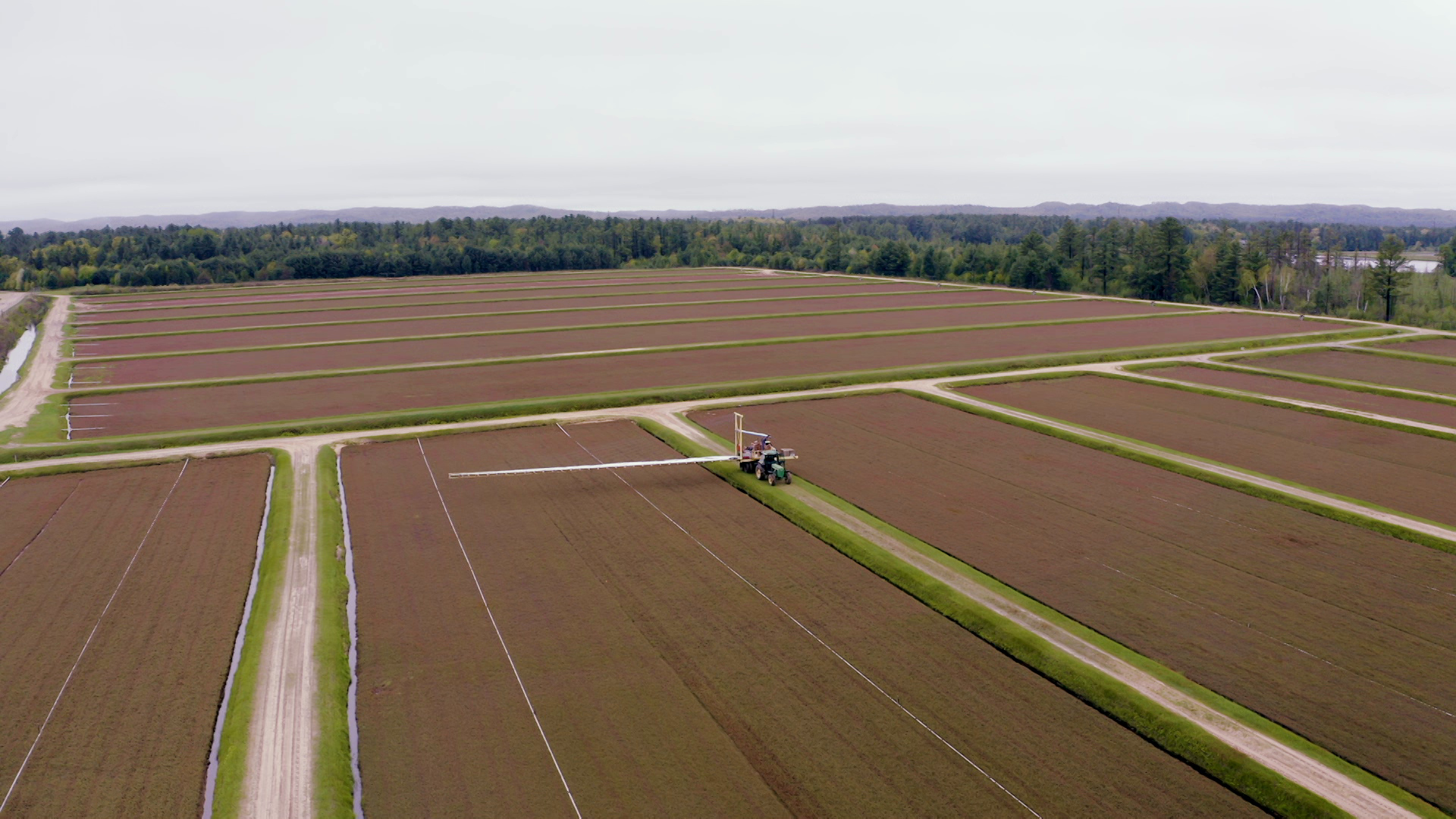
Jackson County is at the heart of central Wisconsin’s cranberry growing region. The state produces well over half of the total cranberry crop of the United States. (Credit: PBS Wisconsin)
Growing up out in the country, it took a while for Jack to realize the nearby city of Black River Falls was still a small town.
“So, I thought Black River was a big city and then Eau Claire was ginormous, like probably about the size of New York. And I was like, whoa!”
Eventually he made it to New York City — and immediately missed the openness of the marsh.
“I went on a New York trip in high school and I absolutely hated it,” said Jack. “I thought there were way too many people around.”
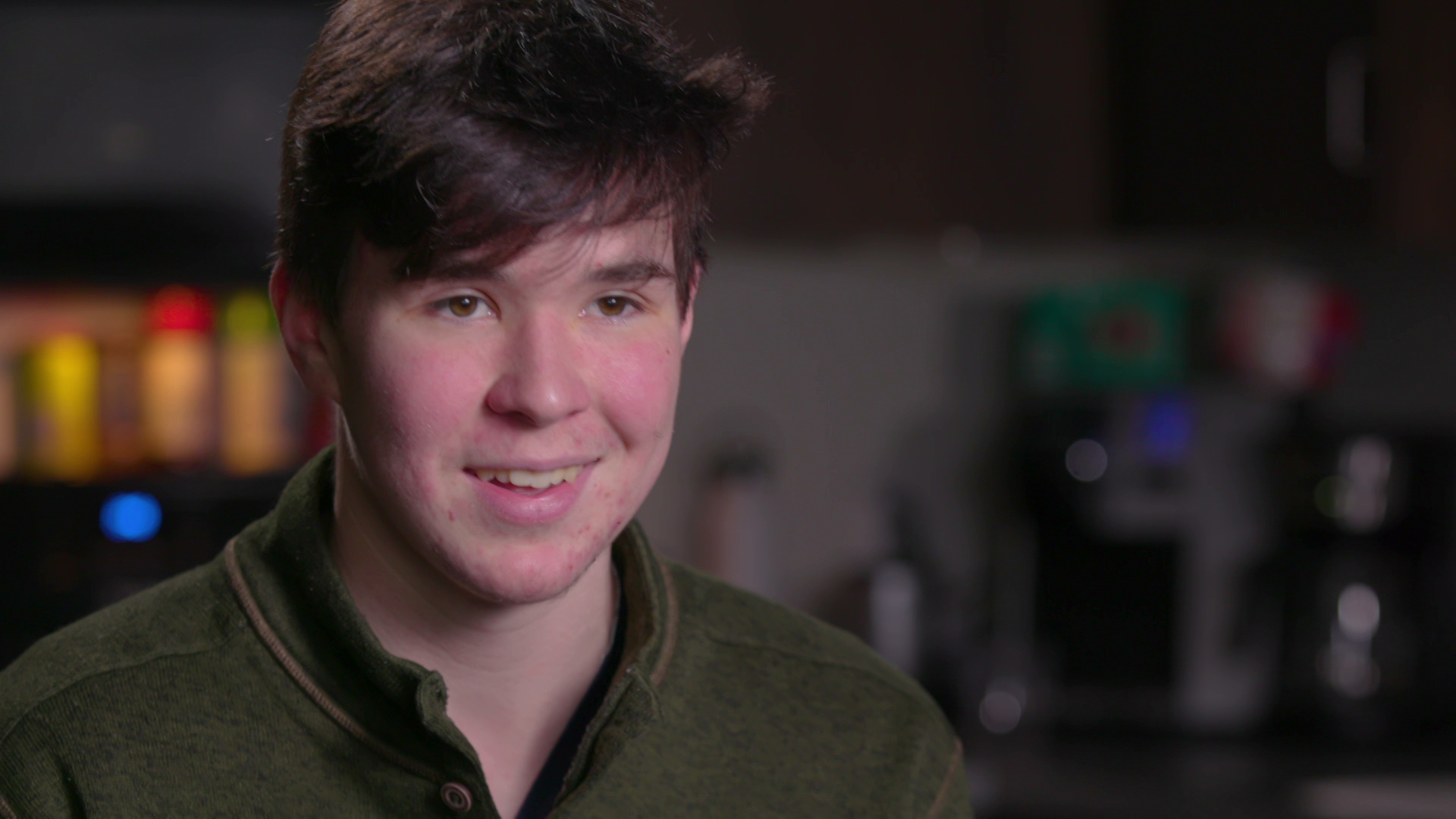
Jack Harkner (Credit: PBS Wisconsin)
Jack’s first stop after high school was to move to Appleton to attend Fox Valley Technical College — and surprisingly, he likes it.
“I actually really like the Appleton area. There’s enough people to get enough businesses where you don’t have to travel. Like if you want to go shopping, you don’t have to drive forty-five minutes to a mall,” he said. “But everyone kind of goes to bed around 9 o’clock.”
But Jack has no plans to move to the city full time. He’s learning to be an electrician, as both a backup career and a useful skill on the farm.
“If the marsh goes down, I still have something, but also on the marsh, we do a lot of stuff,” he noted.
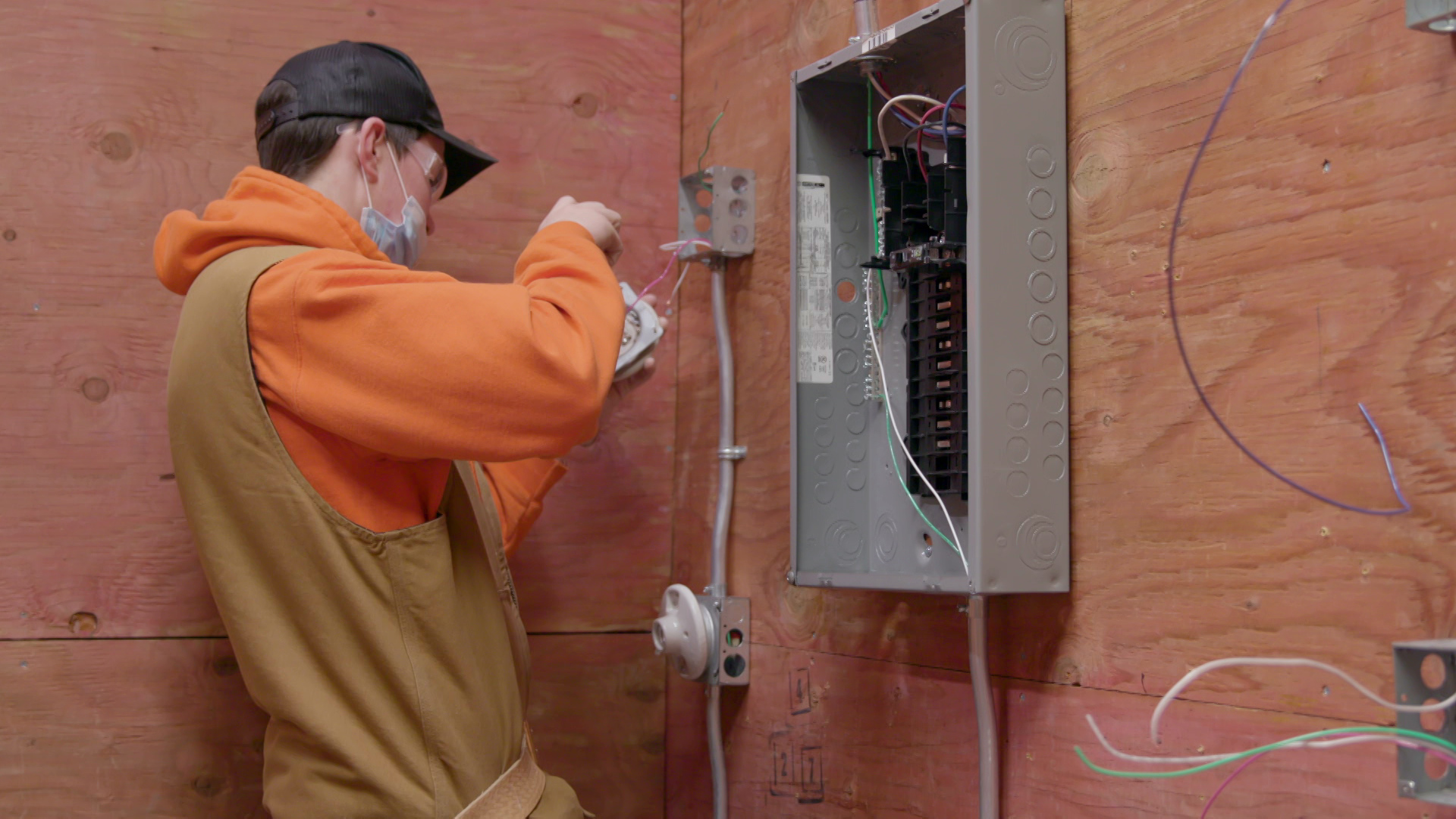
Jack Harkner is training how to be an electrician at Fox Valley Technical College in Appleton to learn skills that can have value both on and off the family cranberry farm. (Credit: PBS Wisconsin)
Jack says a memory from five years ago cemented his faith in rural Wisconsin.
One November morning his school bus rolled over.
“Everybody who was on the highway stopped, pulled over and made sure all the kids were OK,” he recalled.
“‘Hey, do you want to get in our cars and warm up because it was cold?’ And I think that’s a big thing about that you won’t find in a big city. I think a big part of rural Black River Falls is everyone’s just like, ‘Hey, let’s help each other,'” Jack added.
“I was on the left side on the bus and it flipped onto the right side. So when I lifted up my head, I was on the windows that were on the ground,” remembered Jenna Quakenbush.
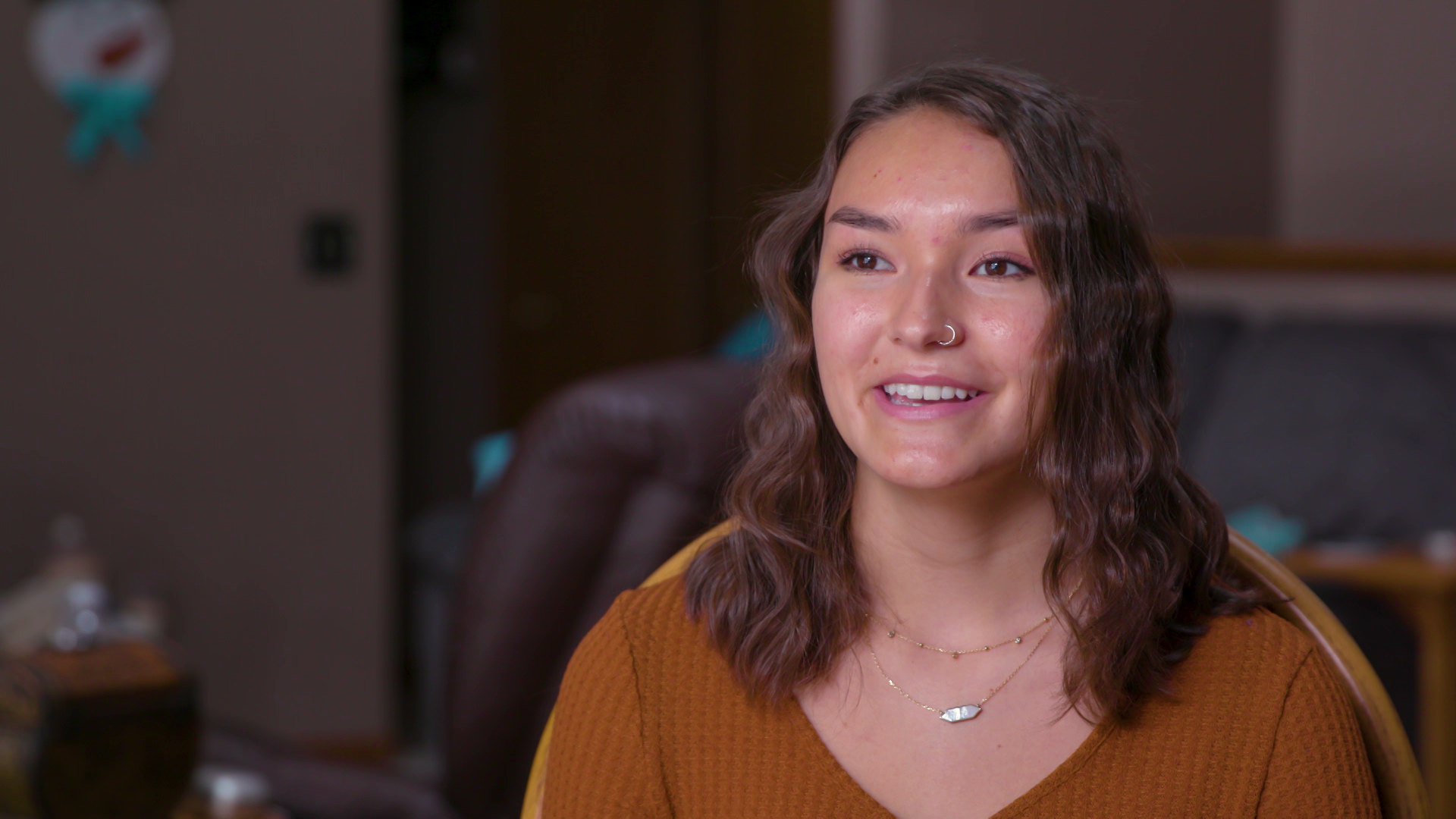
Jenna Quakenbush (Credit: PBS Wisconsin)
Jenna was on the bus that morning, but the crash made a different impression on her.
“I was still calm and I didn’t even cry. And I just heard all the chatter, like the younger children were crying. And I helped them get off the bus,” she said.
Jenna said the crash changed her life.
“I realized after that that I really liked helping people,” she shared.
Soon after Jenna started taking classes to be an emergency medical technician, and soon found herself working for the Black River Falls Fire Department.
“It’s exciting because you never know what’s going to happen, but you never know what is going to be a big call,” she said.
For the moment, Jenna has an apartment in La Crosse while she attends Western Technical College to become a paramedic. City life is an adjustment compared to growing up in the woods.
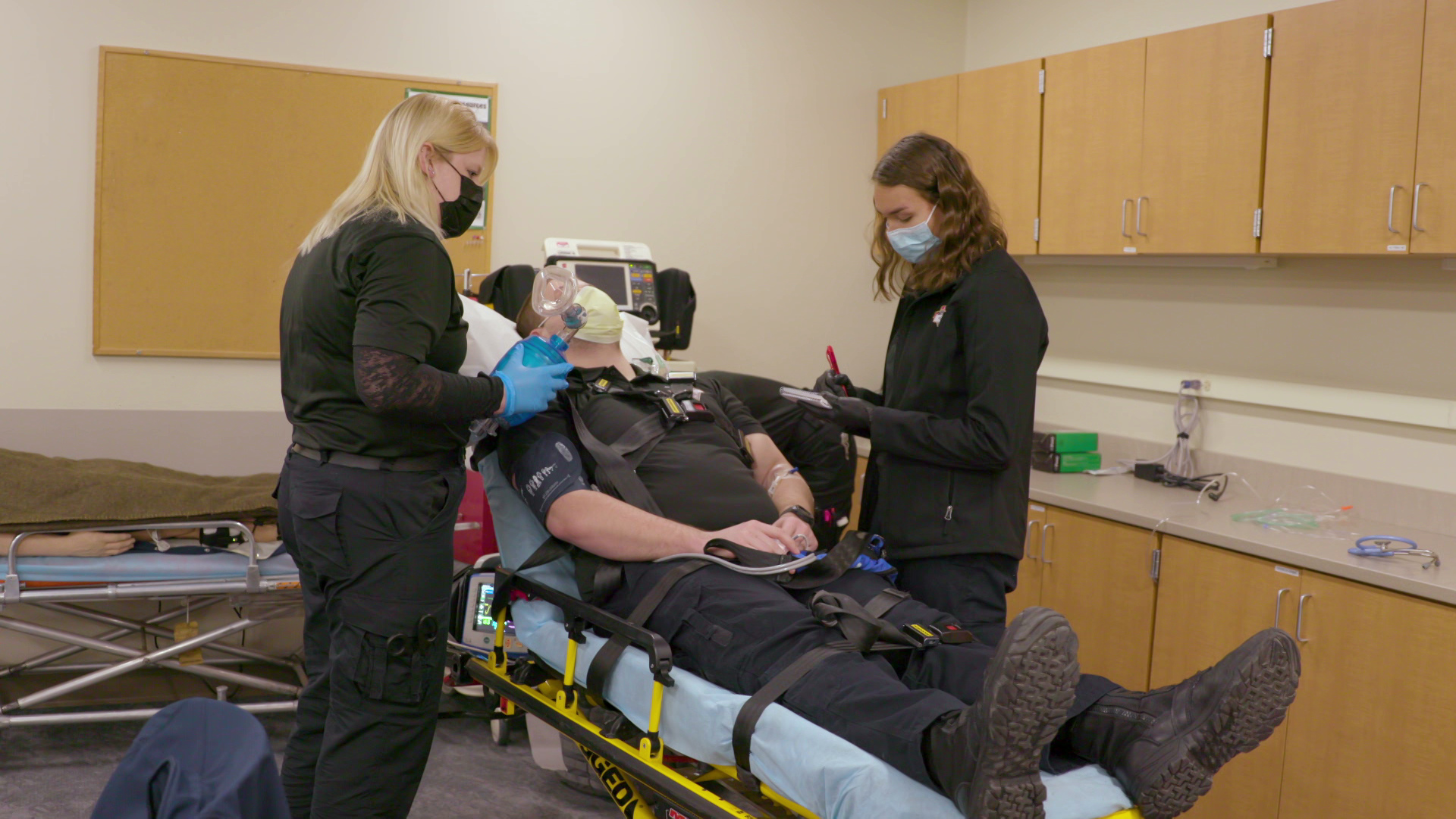
Jenna Quakenbush is training to be a paramedic at Western Technical College after a school bus crash inspired her to want to help people in her career. (Credit: PBS Wisconsin)
“I like rural Wisconsin because I like to be able to have my windows open and not feel like people are looking in,” she said. “But yeah, La Crosse — I close the blinds at night, but here I like having space.”
Jenna says emergency calls in her hometown actually feel different.
“In a city it’s more fast paced. Everyone is trying to move really fast and I’m sure if you have calls backed up, you’re going to try and move through things faster. But here we can kind of take our time,” she said.
“It’s almost more homey in a way. I don’t know how to explain it, but just people feel more heartfelt,” Jenna added.
Kelly Nieman is on a first name basis with a lot of people in Black River Falls.
“I love being a part of the small town because I do know a lot of people and a lot of people know me,” she said.

Kelly Nieman (Credit: PBS Wisconsin)
As the owner of Studio 107 she gets everyone looking their best.
“I like people walking in the door and everybody, ‘Hi, Carol, how’s it going? Bye Sue, have a good day,'” she shared.
After high school, Kelly moved to Eau Claire for college, but soon switched to cosmetology school, in part to get back home a couple years earlier.
“I just never really wanted to go anywhere else. I didn’t really think, think past that. I just wanted to go get my education and come back here and work and live life in Black River,” she said.
Now Kelly owns the salon where she started as a receptionist — and if she ever thinks Black River doesn’t offer enough — the drive to Minneapolis will change her mind.
“Every year that I go there, I get nervous driving, you know, sweaty palms gripping the steering wheel, hoping that the six lanes of traffic you can handle. But I have no desire to move to a big city,” she said.
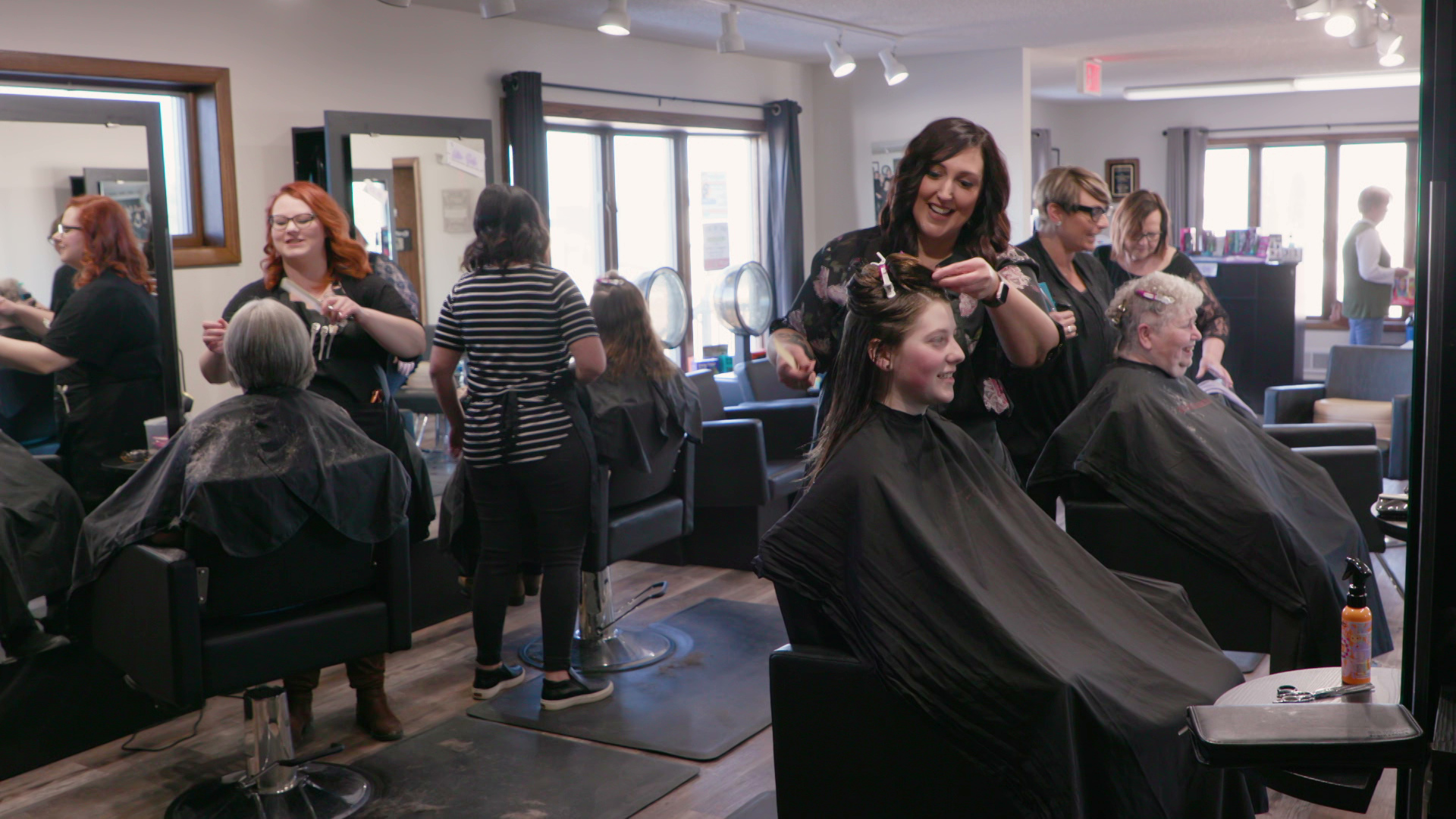
Kelly Nieman cuts and styles the hair of a client at Studio 107, a salon in Black River Falls that she owns and where she enjoys meeting with other members of the community. (Credit: PBS Wisconsin)
Kelly said the draw of family always pulled her back to Black River.
“My roots are deep here,” she said.
Once in a while, Kelly sees an empty storefront in Eau Claire and thinks — what if?
“I think about that sometimes, like, what, how my life might have been different? And I don’t know where it would have taken me if I couldn’t get a job in Black River right away or if I were living in Eau Claire for four years. Maybe I would have decided I liked Claire and stayed there. I’m not sure, but that’s not what happened,” said Kelly.
“You don’t want to ever live life second guessing or, you know, always saying what ifs,” said Max Hart.
Max almost didn’t come back home.
“My dad didn’t want me to farm. If he knew what I was doing today, he probably won’t really be happy. I’m not quite sure,” he said.
Max grew up on a small dairy farm.
“Typical farm kid,” he noted.
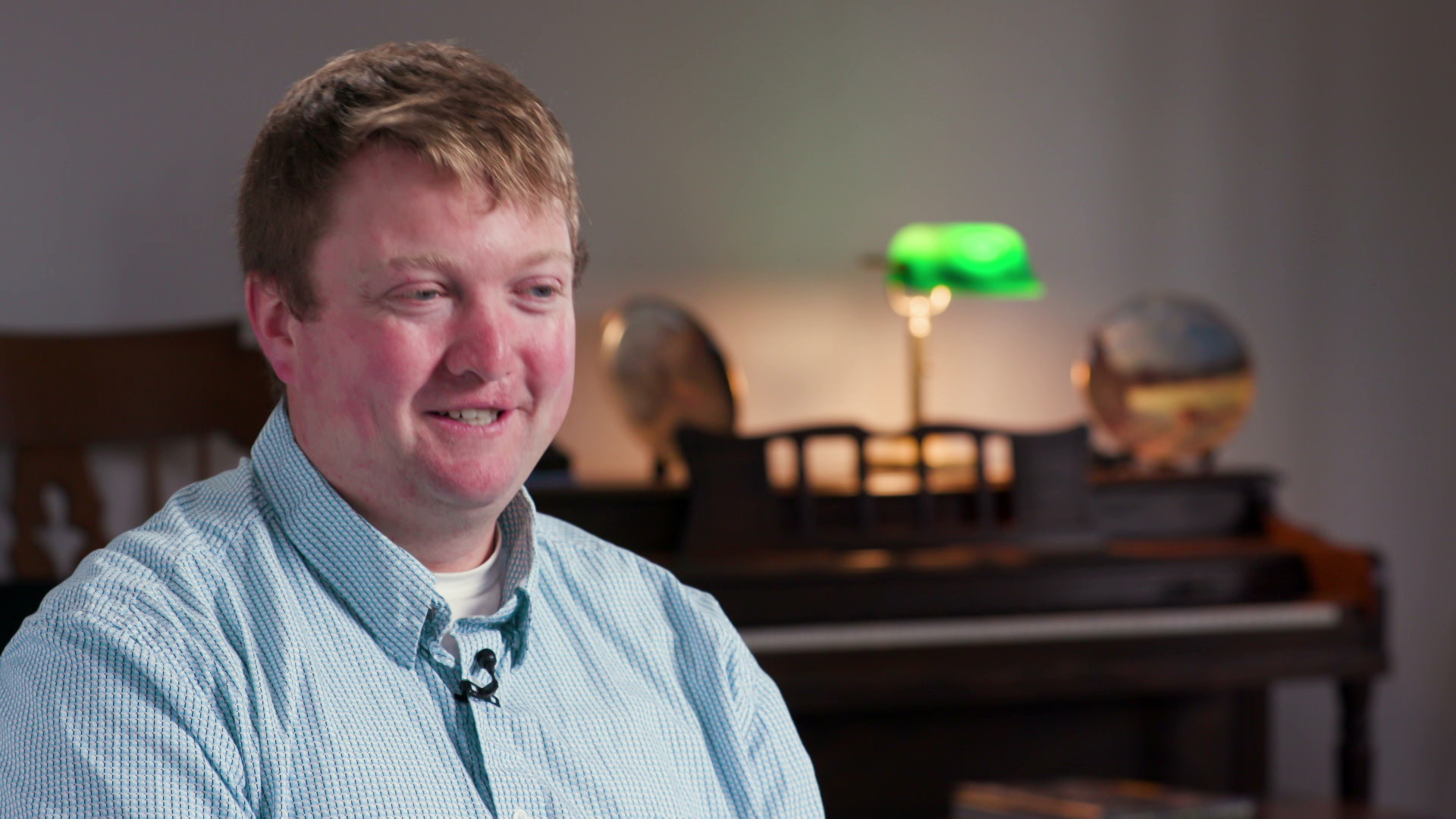
Max Hart (Credit: PBS Wisconsin)
His parents pushed him to go to college.
“I’m the first generation in my family to go to college, and my dad, he instilled in me that you can always come home and farm. But he wanted me to go to college,” Max said.
At the end of his junior year of college, Max’s father died in a motorcycle accident.
“You know, it’s a lot to handle,” he said. “It was a tough, tough summer milking cows – this my mom and I – and him not being there.”
That fall, Max went back to school, and the cows went to market.
“It’s tough to see the livelihood of my parents farm go down the road on a couple of cattle trailers,” he said.
“I went back to school and I never dreamed of coming back here.”
Eventually, Max and his mother bought some cattle — there was no milking — but the farm was alive again.
“It felt like pride,” he said.
Max got a job as an agricultural loan officer at a bank, and he lives just down the road from his mom.
“I actually live right halfway between the two houses I grew up in — so [I] haven’t moved very far,” he said.
Max is also carrying on another family tradition by serving on the Jackson County Board.
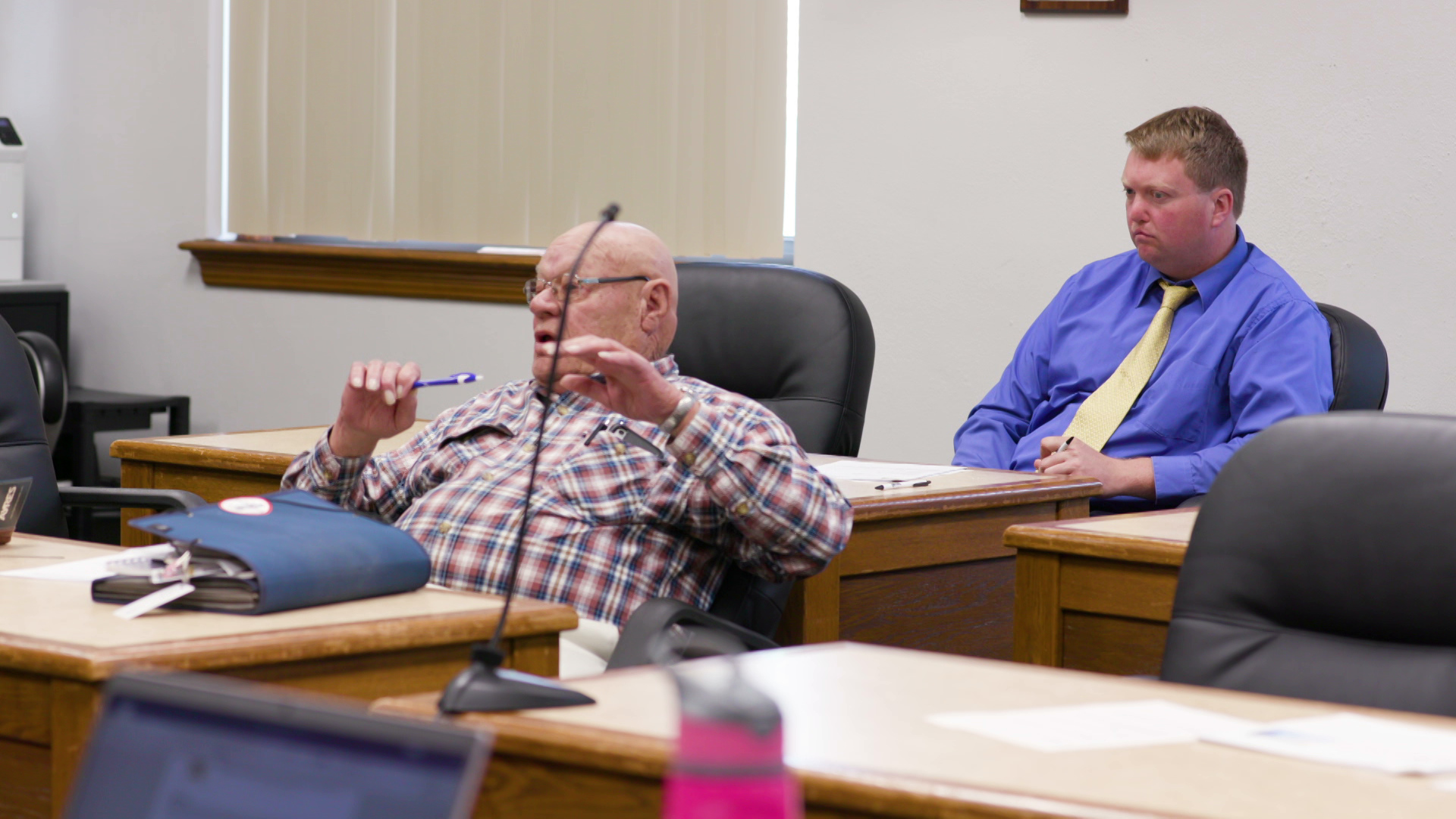
Max Hart serves as a supervisor on the Jackson County Board, extending a family tradition of public service in the area. (Credit: PBS Wisconsin)
“Public services has been ingrained in my family for a long time, so it goes back generations. My great-grandpa Hart was on the county board. My grandma Hart was a town clerk,” said Max. “My dad was the town chairman and supervisor. My mom has been the clerk and the treasurer. My sister is the clerk in her township.”
In his personal life, Max symbolizes the locals who decide to stay in rural Wisconsin. In his public life, he has to figure out how to keep more people from moving away.
“A lot of my friends that went to college didn’t come back home,” Max noted.
Jack Harkness said he knew early on a lot of his friends from high school wouldn’t be sticking around.
“It’s like, I’ll see you when you come home to visit your parents, and stuff like that,” he said.
Jenna Quackenbush said career choices led many of her classmates to the Cities.
“A lot of people believe that if they want to get a very successful job that they need to move to a bigger city,” she said.
Kelly Nieman said nearly half of her graduating class left town.
“It’s probably about fifty-fifty. I could be wrong, but I feel like about half of our class isn’t here, and about half of them are here,” she said.
“It’s easy to move to cities — it’s so convenient. It’s five to 10 minutes to a local grocery store. There’s so many amenities in the urban areas. So what brings them back to the rural areas?” Max Hart asked.
The answer for each has to do with family.
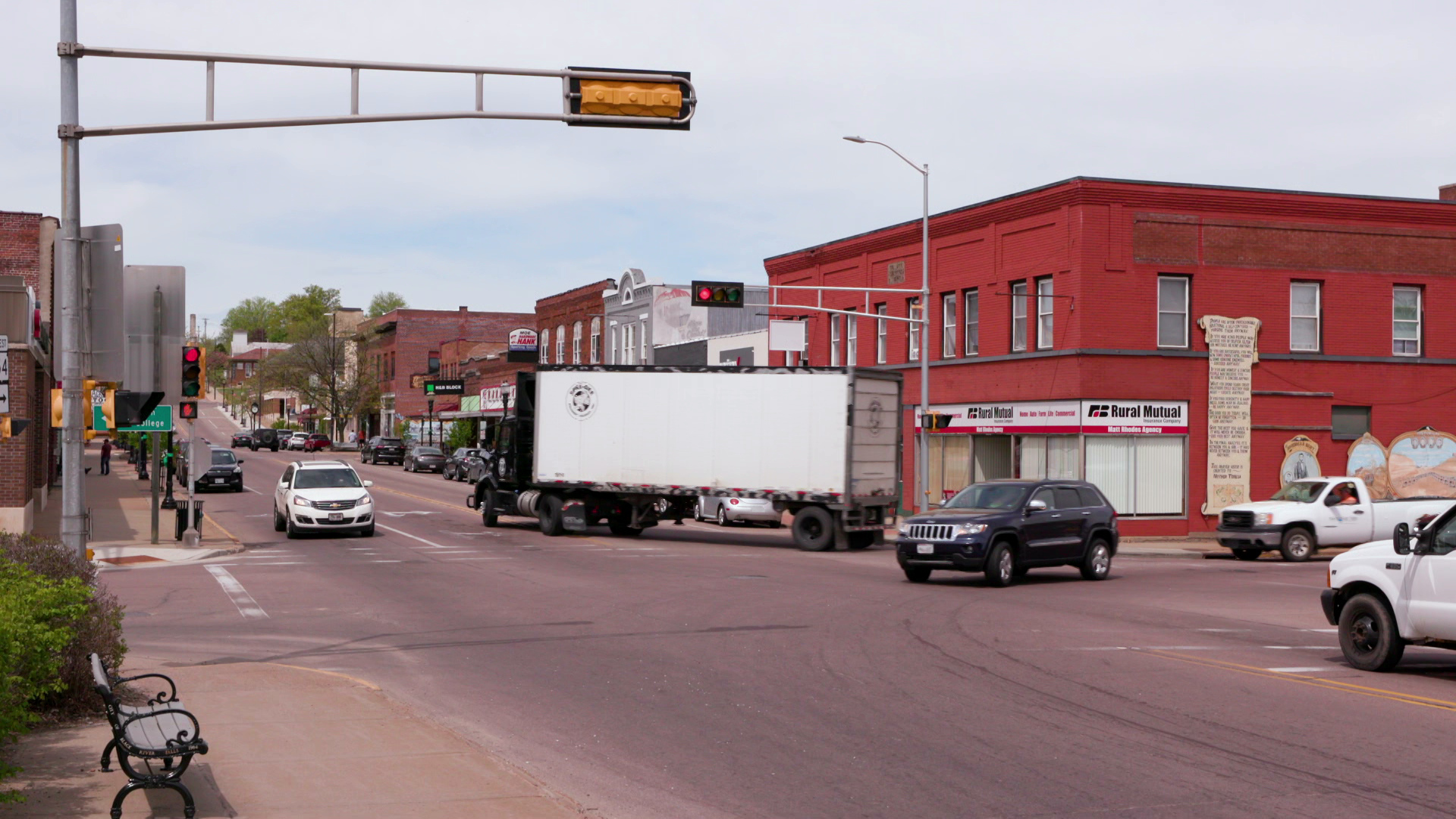
Young adults who grew up in Black River Falls and surrounding rural areas share different individual reasons why they continue to live in the community, but each also point toward the role of family. (Credit: PBS Wisconsin)
“There’s a lot of factors about people leaving and if they come back or not,” said Jack. “Mine was the marsh. That’s the reason I’m coming back.”
“I feel like it’s more my family here, because I love them so much and I got to visit them all the time. So that really draws me back to here,” Jenna said.
“One thing about growing up and living around here: You have all the resources and the contacts. You know, you don’t have to learn new people or new places or new traits,” said Max. “So it’s convenient. Not saying I wouldn’t want to live anywhere else, but I really enjoy living around here, especially the farm. I really enjoy the farm.”
“When I think about the people that are here, I think it’s more of a choice. The ones that I know and interact with anyway, I’m pretty sure that they feel kind of similar to me,” Kelly said. “The families here, they grew up here, they like it here, so they stayed here.”
 Passport
Passport








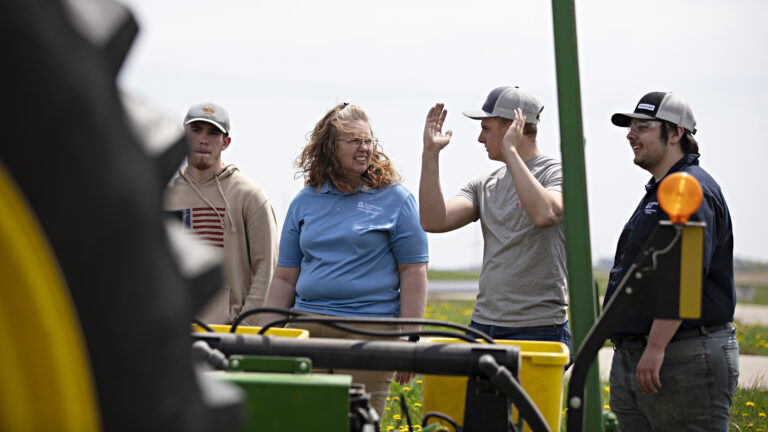


Follow Us